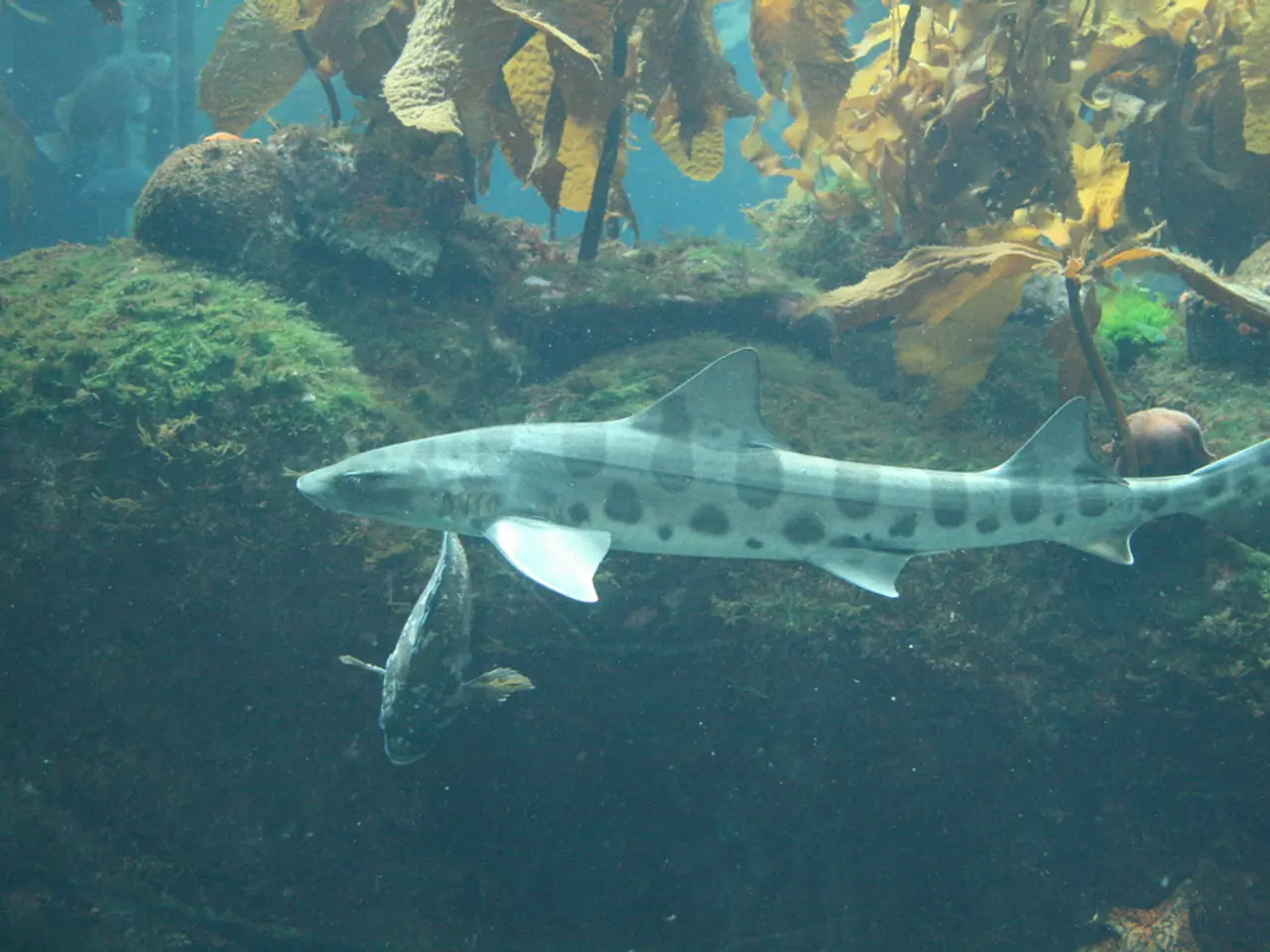Ninja duo takes on environmental crusade: Protection of Posidonia and black coral reefs
In the crystal-clear waters of the Egadi Islands, a recent expedition led by biologist Giovanni Chimienti, funded by the National Geographic Society, has unearthed an intriguing discovery: the second CO2-killer organism, black coral, scientific name Antipathella subpinnata. This discovery was featured in the documentary "The White in Blue."
Black coral, a little-studied colony of organisms living in the deep sea, beyond 60 meters of depth, plays a crucial role in carbon capture. Through a process called calcification, these organisms produce calcium carbonate skeletons, effectively sequestering carbon in the form of carbonate minerals. This biomineralization process contributes to carbon sequestration in marine environments, helping reduce atmospheric CO2 and playing a part in the ocean’s carbon cycle.
Moreover, the presence of black coral around the Egadi Islands creates complex three-dimensional habitats that support a rich diversity of marine life. By providing shelter and surfaces for other organisms to colonize, these structures increase biodiversity by offering food resources, shelter, and breeding grounds for various fish species, crustaceans, and other marine invertebrates. This biodiversity hotspot effect makes the region ecologically rich and productive.
The resilience of black corals is particularly noteworthy. Fossil coral studies indicate that corals maintain calcification even under environmental stress by adapting their internal chemistry, which is crucial for their survival and continued carbon capture in warming and acidifying oceans. This suggests black corals, like other reef-building corals, have some resilience to climate change impacts.
Meanwhile, another CO2-eater, Posidonia, often mistaken for seaweed, thrives in the Egadi Islands. Known as the Amazon of the Mediterranean, Italy's blue lung absorbs CO2 at an impressive rate, making it one of the most efficient machines for carbon capture and storage (CCS). The largest Posidonia meadow in the Mediterranean can be found in the Egadi Islands Marine Protected Area.
The Prada group has promoted this expedition as part of the Sea Beyond project with UNESCO, highlighting the importance of preserving these carbon-fighting organisms and their habitats. As we continue to grapple with climate change, the discoveries in the Egadi Islands offer a glimmer of hope and a reminder of the wonders that lie beneath the surface of our oceans.
- In the realm of science, the role of black coral, known as Antipathella subpinnata, in health-and-wellness and climate-change mitigation is significant due to its carbon capture capabilities through calcification, a process that forms carbonate minerals.
- The Egadi Islands, known for their rich biodiversity, are not only a haven for marine life but also a hotspot for fitness-and-exercise in the deep sea, with black coral creating complex structures that enhance the livelihood of various organisms.
- As technology advances and our focus shifts towards environmental-science and sustainable lifestyles, the resilience of black corals under environmental stress, such as warming and acidifying oceans, presents an encouraging aspect for their continued carbon capture and possible adaptation in future climate scenarios.
- The Prada group, in partnership with UNESCO's Sea Beyond project, emphasizes the importance of preserving carbon-fighting organisms like black coral and thePosidonia seaweed, which thrives in the Egadi Islands, as part of our broader travel and lifestyle choices aimed at combating climate change.




